Journalists are eligible for free email subscriptions to SEJournal, including TipSheet, WatchDog (on access issues) and more.
Breakfast Breakouts
Concurrent Sessions
Lunch Plenary
Mini-Tours
Dinner and Texas Swing
| Agenda | Coverage | Lodging/Transportation | Exhibits/Receptions | Environmental News | About Lubbock |
As a journalism organization that believes in an open society, SEJ each year welcomes a diverse group of attendees to our annual conference. Attendees include representatives of business, government and environmental groups, as well as working journalists, academics and students.
Because non-journalists are here, you may see or hear presentations or responses to presentations that you might not expect from mainstream journalists. The presentations and any responses do not necessarily reflect the views of SEJ or any of its members.
As our guest, you should respect our interest in open discussions of environmental issues by thanking all participants in sessions you attend and not disrupting presentations of views you disagree with.
Finally, please respect our rule that SEJ members are given preference during question-and-answer sessions.
All sessions, as well as registration, exhibits and breaks, will be at the Overton Hotel
and Conference Center, 2322 Mac Davis Lane, Lubbock, unless otherwise indicated.
Saturday, October 20, 2012
Registration
6:30 a.m. - 2:00 p.m.
If you haven't already signed up for the Saturday party or Sunday brunch, check with registration personnel — there might still be room.
Location: South End Prefunction Space, Main Floor (near the stairs as you approach the Sunset Ballroom from the hotel)
SEJ Information Table
6:30 a.m. - 2:00 p.m.
Sign up here for Saturday mini-tours, find membership applications, copies of SEJournal and other SEJ information.
Location: Sunset Ballroom Foyer, near the main outside entrance of the Conference Center
Vehicle Technology Demo
6:30 a.m. - 2:00 p.m.
Sign up here to test-drive new technology in the auto industry, and talk with experts from GM, Nissan and Volkswagen.
Location: Sunset Ballroom Foyer, near the main outside entrance of the Conference Center
Exhibits
7:00 a.m. - 2:00 p.m.
Browse through this year's exhibits, offering up information on issues and solutions, fellowships, source lists and maybe even some fun give-aways. Don't forget to check the second floor, too!
Location: Sunset Ballroom and ballroom foyer on the main floor, and outside the Horizon Ballroom on the 2nd floor
Breakfast Breakout Sessions
7:30 - 8:45 a.m.
1. Big Weather: A Guide to Explaining Extreme Weather to Your Audience
It's all online, but how do you find it? Learn where to find historical comparisons of drought; evolving details on wildfires; the path and damage caused by a tornado; records on historic heat waves. And more! Steven Cobb, meteorologist with the National Weather Service in Lubbock, and Jennifer Daniel, a masters degree candidate with the Atmospheric Science Department at TTU, will lead a hands-on tutorial on finding online information from NOAA/NWS and other weather sources. Coverage.
Moderator: Nancy Gaarder, Reporter, Omaha World-Herald
Speakers:
Steven Cobb, Meteorologist/Science and Operations Officer, Lubbock, TX Weather Forecast Office, National Weather Service
Jennifer Daniel, M.S. Atmospheric Science Candidate, Texas Tech University, and President, Student Chapter, American Meteorological Society
Location: RHIM Classroom, 2nd Floor (next to the fitness center). Note: While all session activities will be projected on the big screen at the front of the classroom, attendees are encouraged to bring a laptop to follow along, bookmark sites and get "hands-on" training. For those without computers, the computer classroom has a limited number of desktop computers available on a first-come, first-served basis, so get there early!
2. Book-Writing in the New Media Landscape
In this session we'll explore how to write the book you always wanted to write, even though the publishing world has changed dramatically, by using conventional and unconventional means, digital and analog. Coverage.
Moderator: Florence Williams, Author, BREASTS: A Natural and Unnatural History, and Contributing Editor, Outside Magazine
Speakers:
Elizabeth Grossman, Author, Chasing Molecules: Poisonous Products, Human Health, and the Promise of Green Chemistry and High Tech Trash: Digital Devices, Hidden Toxics, and Human Health
Michael Kodas, Author, High Crimes: The Fate of Everest in an Age of Greed and Megafire (current project), and Photojournalist
Joe Roman, SEJ's 2012 Rachel Carson Environment Book Award Winner, and Research Professor/Freelance Writer/Conservation Biologist, Gund Institute of Ecological Economics, University of Vermont
Location: Horizon Ballroom B, 2nd Floor
3. Managing Chemicals Globally: A Policy Perspective
Commercial chemicals, critical to modern lifestyles, permeate the global environment. Safe handling and proper disposal of chemicals — including those in cell phones, computers and other electronic equipment — is a worldwide challenge. At this session, you'll get a crash course in treaties to control international shipments in hazardous waste, eliminate persistent pollutants that are transported far from where they are released, and provide developing countries with a blueprint for regulating chemicals domestically. Experts will describe successes and failures of these global agreements as well as emerging challenges such as nanomaterials. Coverage.
Moderator: Cheryl Hogue, Senior Correspondent, Chemical & Engineering News
Speakers:
Valerie Denney, Communications Advisor, International POPs Elimination Network
Vickie Sutton, Professor of Law, School of Law; Director, Center for Biodefense, Law and Public Policy; Director, Law and Science Certificate Program and The JD/MS Program in the Life Sciences, Institute of Environmental and Human Health, Texas Tech University (invited)
Jack Weinberg, Senior Policy Advisor, International POPs Elimination Network
Location: Canyon Room, 2nd Floor
Concurrent Sessions 3
9:00 - 10:15 a.m.
All concurrent sessions are located on the 2nd floor.
THE CRAFT
Including Diverse Voices in Environmental Stories
 |
Environmentalism has long been associated with the white middle class. There has been little evidence of diversity among environmental organizations, the scientists and experts consulted on environmental developments, and the reporters telling their story. But society is not monolithic. Environmental developments and government decisions may well have disparate impacts on minority communities and cast doubt on conventional environmental wisdom. This panel discusses the need to incorporate minority views, impacts, and sources when developing environmental stories. Coverage.
Moderator: Roger Witherspoon, Independent Journalist, and Energy Writer and Automotive Columnist, NewJerseyNewsroom.com
Speakers:
Melissa del Bosque, Reporter, Texas Observer
Terry Greenberg, Editor, Lubbock Avalanche-Journal
David Klein, Associate Professor, Department of Environmental Toxicology, Texas Tech University
Location: CH Foundation Boardroom, 2nd Floor
THE NATION
People, Polls, Politics and the Environment
 |
Recent public opinion surveys and polls show voters are divided along political lines about important environmental and energy issues, and particularly how to address those issues. Panelists at this session will discuss a few of the key polls conducted this year, including a major survey of the attitudes of Americans on key energy-related issues and a U.S. Fish and Wildlife Service study showing increased interest in sport fishing and other wildlife recreational activities. Coverage.
Moderator: Carolyn Whetzel, SEJ President and Environmental Reporter, Bloomberg BNA
Speakers:
John Gerlach, Assistant Professor, Department of Political Science, Texas Tech University
Joyce Johnson, Special Assistant, Program Analysis and Development, Wildlife and Sport Fish Restoration Program, U.S. Fish and Wildlife Service
Matt Kozey, Principal Research Analyst, Security, Energy, and Environment Department, NORC, University of Chicago
Trevor Tompson, Principal Research Scientist and Director, Associated Press-NORC Center for Public Affairs Research, University of Chicago
Location: Horizon Ballroom B, 2nd Floor
THE WATER
Reusing Wastewater: From Drought Woes to Faucet Flows
 |
From Los Angeles to Singapore, water-limited metros have overcome the "yuck factor" to sell the public on recycled sewage for drinking water. Now, worsening drought and dropping aquifers have many more communities, including Lubbock, considering the ultimate in recycled H20. Experts on the policy and technical side of wastewater reuse describe its promise — not only for drinking water but for fuel — as well as risks and costs. Coverage.
Moderator: Cynthia Barnett, Journalist and Author
Speakers:
George Madhavan, Director, Singapore Public Utilities Board
Ron Wildermuth, Public and Governmental Affairs Manager, West Basin Municipal Water District
Daniel Yeh, Associate Professor, Civil and Environmental Engineering, University of South Florida
Location: Horizon Ballroom C, 2nd Floor
THE COMPUTER
EPA's Cool New Data (Vizualization and Mapping) Tools
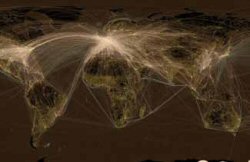 |
Reporters who want to find local environmental stories can get lots of help from cool new EPA data tools. Gone are the slow, kludgy EPA databases of old. A revolution in the last several years has brought more pollution data into the open and more apps for visualizing it and layering it onto maps. This means no-cost and copyright-free graphics that your editor will love, whether you work in print, broadcast, or online. Join us for a lightning tour of more than half-a-dozen data reporting tools. EPA presenter invited.
Presenter: Joseph A. Davis, Freelance Journalist and WatchDog Project Director/TipSheet Editor, Society of Environmental Journalists
Location: RHIM Classroom, 2nd Floor (next to the fitness center). Note: While all session activities will be projected on the big screen at the front of the classroom, attendees are encouraged to bring a laptop to follow along, bookmark sites and get "hands-on" training." For those without computers, the computer classroom has a limited number of desktop computers available on a first-come, first-served basis, so get there early!
THE LAND
The "Fabric of Our Lives" and the Life of the Land
 |
Proclaimed "the fabric of our lives" by a universally familiar industry campaign, cotton is an ancient fiber that today provides a growable alternative to synthetics made from unsustainable crude oil. Yet the crop has long been criticized for its water demands, chemical use, and effect on the land. The cotton industry and its allies say research and dramatically improved practices have turned cotton into a force for sustainability. Environmental groups say the industry remains a case study in how to raise a crop with maximum environmental impacts. Join us during the autumn harvest season, when cotton puts on its "dress whites" across the Texas High Plains, for a discussion about the little white bolls and the Earth. Coverage.
Moderator: Randy Lee Loftis, Environment Writer, The Dallas Morning News
Speakers:
Jodey Arrington, Vice Chancellor, Research, Commercialization and Federal Relations, Office of Technology Commercialization, Texas Tech University System
Craig Cox, Senior Vice President, Agriculture and Natural Resources, Environmental Working Group
Brent Crossland, Business Development Manager for Fiber Development, Bayer CropScience
Amy Hardberger, Assistant Professor, School of Law, St. Mary's University; Attorney; and Consultant, Environmental Defense Fund
Andrew Jordan, Sustainability Implementation Consultant, Cotton Incorporated
Location: Canyon Room, 2nd Floor
THE ECONOMY
Green Businesses: The Bottom Line on Tackling Sustainability
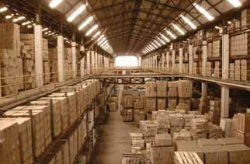 |
The sustainability story is not a wide-rushing river in the corporate world, but rather a vast delta that spans business and environmental journalism beats. We'll talk about how corporations are paying attention to sustainability — from supply chains, energy and product planning to manufacturing facilities, natural resources and waste management. We'll zero in on a new, near-net-zero manufacturing plant; examine the challenges that lay ahead with long-term sustainability planning; and give examples of how clean tech plays a starring role in green business. Coverage.
Moderator: Lisa Palmer, Freelance Reporter and Editor
Speakers:
Al Halvorsen, Senior Director of Environmental Sustainability, PepsiCo
Sharlene Leurig, Senior Manager, Water and Insurance Programs, Ceres
Clint Wilder, Senior Editor, Clean Edge Inc., and Co-author, Clean Tech Nation
Location: Horizon Ballroom A, 2nd Floor
Beverage Break
10:15 - 10:45 a.m.
Location: 2nd Floor Hallway
Concurrent Sessions 4
10:45 a.m. - Noon
All concurrent sessions are located on the 2nd floor.
THE CRAFT
Academics and College Newspapers
 |
This session focuses on college newspapers and other publications in a digital and social media environment. What tactics and strategies have been successful (or not) in attracting a college audience to college media? Three environmental journalists who now advise college publications will share what they have learned. Coverage.
Moderator: Mark Neuzil, Professor, Department of Communication and Journalism, and Director, Office for Mission, University of St. Thomas
Speakers:
Dan Fagin, Associate Professor and Director, Science, Health and Environmental Reporting Program, New York University
Nadia White, Assistant Professor, School of Journalism, University of Montana
Location: Moody Boardroom, 2nd Floor
THE WATER
The Clean Water Act at 40: Under-enforced and out of Date — and a Story for You!
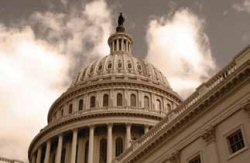 |
2012 marks the 40th anniversary of Congress' passage of this bedrock environmental statute, and we guarantee you'll come away from this session prepared to produce one or more stories for your news outlet. We'll hear about how enforcement is lagging and how you can document that; what ongoing pollution that was supposed to have ended by now means to people on the downstream end; and what should be happening in every watershed in the country but remains incredibly rare. Plus we'll hear from an expert on what the government should do about regulating the six million pharmaceuticals and personal-care products that are turning up in our waterways and drinking-water supplies. Coverage.
Moderator: Robert McClure, Executive Director, InvestigateWest
Speakers:
Tom Arsuffi, Director, Llano River Field Station, Texas Tech University at Junction
Gabriel Eckstein, Professor, Texas Wesleyan University School of Law and Of Counsel, Sullivan & Worcester LLP
Mark Schleifstein, Staff Writer, The Times-Picayune
Location: Horizon Ballroom C, 2nd Floor
THE GLOBE
Environmental Injustice: Industrial Hazards in Border Cities
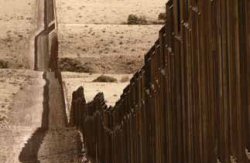 |
On the 30th anniversary of a North Carolina battle that is widely considered the birth of the environmental justice movement, a legacy of lingering problems and newly emerging threats remains. In hundreds of communities across the U.S., environmental problems are jeopardizing people of color in low-income communities. We talk to experts who will discuss untold stories — particularly along the U.S.-Mexico border — that will resonate with all races and classes. In many cases, these communities have been largely ignored by the media. Coverage.
Moderator: Marla Cone, Editor-in-Chief, Environmental Health News
Speakers:
Irasema Coronado, Professor, Department of Political Science, University of Texas at El Paso
Patricia Juárez-Carrillo, Lecturer, Chicano Studies Program, University of Texas at El Paso
Bryan Parras, Media/Youth Coordinator, T.E.J.A.S.
Location: Canyon Room, 2nd Floor
THE COMPUTER
New Online Mapping Tools with Esri and CEC
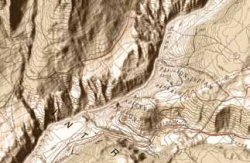 |
Software is getting easier, and data is getting more available. Changes in technology are accelerating. This session will update you on the latest Internet-based tools for mapping. This session is a hands-on workshop. Create an interactive digital map of environmental data and publish it on the Internet using your web browser. Attendees should bring their own computers. Attendance is limited; first come, first served.
Presenters:
Clem Henriksen, Strategic Marketing Analyst, Esri
Jeff Stoub, Communications Manager, Commission for Environmental Cooperation
Location: RHIM Classroom, 2nd Floor (next to the fitness center). Note: While all session activities will be projected on the big screen at the front of the classroom, attendees are encouraged to bring a laptop to follow along, bookmark sites and get "hands-on" training." For those without computers, the computer classroom has a limited number of desktop computers available on a first-come, first-served basis, so get there early!
THE LAND
The New Age of Ag: From Biofuels and GMOs to Sustainability and Supply Chains
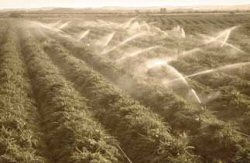 |
It's not just about food anymore. The American farm today is a study of competing interests: Produce more efficiently, find new uses for crops, pollute less and cater to customers' more exacting demands — all while water supplies and reliable weather are under threat. Get up to speed on some of the most vexing issues facing farms from the environmental, industry, and scientific side — and learn how they relate to your region. Coverage.
Moderator: Elizabeth Daley, Reporter, The Boston Globe
Speakers:
Dick Auld, Rockwell Endowed Chair in Plant and Soil Science, Department of Plant and Soil Science, Texas Tech University
Craig Cox, Senior Vice President, Agriculture and Natural Resources, Environmental Working Group
Don Parrish, Senior Director, Regulatory Relations, American Farm Bureau Federation
Location: Horizon Ballroom A, 2nd Floor
THE ECONOMY
Nanotech Update: Economic Boon or Environmental Bane?
 |
We'll look at nanotechnology's many potential applications, how it works, and what we know — and don't know — about the risks of using such altered materials in everything from sunscreen to food to medical treatments. Coverage.
Moderator: Melissa Gaskill, Independent Journalist
Speakers:
Aaron Lovell, Writer/Editor, Science and Technology Innovation Program, Woodrow Wilson International Center for Scholars
Seshadri Ramkumar, Associate Professor, Nonwoven Materials, Countermeasures to Biological & Chemical Threats, Department of Environmental Toxicology, The Institute of Environmental and Human Health, Texas Tech University
Jennifer Sass, Senior Scientist, Health and Environment Program, Natural Resources Defense Council, and Professorial Lecturer, Department of Environmental and Occupational Health, George Washington University
Location: Horizon Ballroom B, 2nd Floor
Lunch and Plenary Session — Election 2012 and the Environment
Noon - 2:00 p.m.
 |
Just three weeks before the presidential election, we'll hear from those who know best the environmental differences between the major parties and what they mean for the future. People who have served at the center of national policy decisions under presidents from each major party; the country's leading organization of businesses and industries; and the political arm of the environmental movement will meet head-to-head to debate our future environmental policies. Coverage.
Moderator: Jeffrey Burnside, Senior Investigative Reporter, KOMO 4 News, Seattle
Speakers:
Alfredo "Al" Armendariz, Senior Campaign Representative, Beyond Coal Campaign, Sierra Club; Regional Administrator, Region 6, U.S. Environmental Protection Agency, 2009-2012
James Connaughton, Executive Vice President and Senior Policy Advisor, Exelon Corp., and Chair, White House Council on Environmental Quality, 2001-2009 (invited)
Jeffrey Holmstead, Partner, Bracewell & Giuliani LLP; Assistant Administrator for Air and Radiation, U.S. Environmental Protection Agency, 2001-2005 (invited)
Kathleen McGinty, Operating Partner, Element Partners, and Chair, White House Council on Environmental Quality, 1993-1998 (invited)
U.S. Rep. Randy Neugebauer, R-Texas, Chair, Subcommittee on Oversight and Investigations, Committee on Financial Services
Location: Sunset Ballroom, 1st Floor
Mini-Tour Bonanza
2:15 - 5:15 p.m.
Sign up on-site for the tour of your choice at the SEJ Information Table beginning Wednesday afternoon.
Tours will begin loading outside the side entrance of the Overton Hotel immediately following the Sat. lunch plenary, and depart promptly at 2:15 p.m. SEJ staff and volunteers will be outside the hotel’s entrance to help you find your bus – all staged and numbered like below. (Exit through doors at far end of first floor hallway near Sunset Ballroom and SEJ Info Table.)
Seats have already been reserved for the tour leaders and speakers on the bus, i.e., tour leaders and speakers DO NOT sign the sheets!
-
Climate Change Through History
Journey back in time to 13,000 years ago when the Texas Plains were immersed in an Ice Age. Come explore evidence of the Ice Age and see how events occurring thousands of years ago can give us clues to climate changes now. Take a tour around the Lubbock Lake Landmark, an important archaeological and natural history preserve. See the remains of the mammoth, camel, giant armadillos, and short-faced bears that once called this place home. What happened to these majestic creatures? Were they wiped out by climate change? Hunted to extinction by early Americans? Or was a meteor to blame? Scientists will discuss how they use the available evidence to reconstruct past changes in climate and environmental conditions. They will also show us how they use that knowledge to understand today’s issues and apply those lessons to the future.Tour Leaders: Amy Kraft, Freelance Journalist; Lana Straub, Freelance Journalist
Speakers: Stance Hurst, Landmark Regional Research Manager, Lubbock Lake Landmark, Museum of Texas Tech University; Eileen Johnson, Director, Lubbock Lake Landmark, Professor of Museum Science, and Curator of Anthropology, Museum of Texas Tech University; Matt McEwen, Historic Maintenance Technician, Lubbock Lake Landmark, Museum of Texas Tech University; Scott Trevey, Historic Maintenance Supervisor, Lubbock Lake Landmark, Museum of Texas Tech University
Attendee Cap: 40
-
Epigenetics: Rewriting Nature vs. Nurture
Most of us were taught to worry about mutagens, things that could alter our genome by damaging DNA. But in recent years, a new prospect has emerged: environmental agents that alter our epigenome — not our genes but the external chemical switches that regulate gene activity. Here we'll visit a scientist who has new data showing how environmental pollutants can do this. A second scientist has new data showing how radiation (in the contaminated forests outside Chernobyl) affects the health of her exposed animals — actually extending lifespan and reducing their vulnerability to some chemical agents (presumably, she says, via epigenetics).
Tour Leaders: Wendy Hessler, Science Writer, Environmental Health Sciences; Janet Raloff, Senior Editor, Science News
Speakers: Brenda Rodgers, Assistant Professor, Department of Biological Sciences and Center for Environmental Radiation Studies, Texas Tech University; Kamaleshwar Singh, Assistant Professor, Environmental Genomics and Molecular Carcinogenesis, The Institute of Environmental and Human Health, Texas Tech University
Attendee Cap: 40
-
Biosecurity: Don't Mess with Hamburger or Anthrax in Texas
A decade after 9/11, excess government secrecy in the name of homeland security is still an obstacle to the public knowing about some of the risks they face. Nowhere is this more true than in the area of biosecurity — a catchphrase that covers hoof-and-mouth disease and E. coli in hamburger, common flu and weaponized anthrax. Recent news stories about censoring production details of an especially virulent strain of bird flu led many observers to question whether the research itself was justified. Texas Tech is at the center of a web of Texas medical research institutions working on biosecurity. Can the public be better informed about biosecurity and the public policy choices that can reduce biosecurity threats?
Tour Leaders: Joseph A. Davis, Freelance Journalist and WatchDog Project Director/TipSheet Editor, Society of Environmental Journalists; Judy Fahys, Reporter, The Salt Lake Tribune
Speakers: Alejandro Echeverry, Research Assistant Professor, Food Microbiology and Safety Program, Department of Animal and Food Sciences, Texas Tech University; Steve Presley, Associate Professor, Immunotoxicology, Countermeasures to Biological and Chemical Threats, The Institute of Environmental and Human Health, Texas Tech University; Vickie Sutton, Paul Whitfield Horn Professor of Law and Director of the Center for Biodefense, Law and Public Policy, School of Law, Texas Tech University
Attendee Cap: 20
-
Pesticides: Agricultural Use, Environmental Impact, Health Effects
Chemicals, particularly pesticides, are a significant component of agriculture in West Texas. While important economically, they present challenges for the protection of wildlife and the environment. This mini-tour, offered by Texas Tech's Institute of Environmental and Human Health (TIEHH), will delve into the science of pesticides. It will include a demonstration of analytical laboratory techniques to determine their presence in the environment, as well as toxicity testing procedures for assessing hazard and potency. You will learn how scientists measure amounts as low as parts per billion, and what such numbers actually signify. Don your metaphorical white coat, get on into the lab, and see how the pros do it, y’all. Coverage.
Tour Leaders: Marla Cone, Editor in Chief, Environmental Health News; Philip Wexler, Technical Information Specialist, Toxicology and Environmental Health Information Program, National Library of Medicine
Speakers: Todd Anderson, Interim Director and Chair, The Institute of Environmental and Human Health and Professor, Environmental Chemistry, Texas Tech University; Ronald Kendall, Founding Director, The Institute of Environmental and Human Health, and Founding Chair and Professor, Department of Environmental Toxicology, Texas Tech University, and past President, Society of Environmental Toxicology and Chemistry; Tim Pastoor, Principal Scientist, Syngenta Crop Protection; Ernest Smith, Associate Professor of Environmental Toxicology, The Institute of Environmental and Human Health, Texas Tech University
Attendee Cap: 25
-
Sustainable Ag and Crops of the Future
In arid regions, any notion of sustainability depends first upon water availability and retention. With climate predictions indicating that dry areas will likely get even drier, this will further complicate agricultural production in places like the U.S. Southwest, African Sahel, Middle East, and across the globe. This tour calls for stops at a USDA plant stress lab that pushes the limits of drought conditions, a research farm growing new crops that can thrive with less water, and an innovative non-woven fabric lab that uses cotton and other fibers in place of synthetic materials. Coverage.Tour Leaders: Ellysa Gonzalez, Ag/Regional Reporter, Lubbock Avalanche-Journal; Sara Shipley Hiles, Freelance Journalist, and Assistant Professor, School of Journalism, University of Missouri
Speakers: Dick Auld, Rockwell Endowed Chair in Plant and Soil Science, Department of Plant and Soil Science, Texas Tech University; Seshadri Ramkumar, Associate Professor, Nonwoven Materials, Countermeasures to Biological & Chemical Threats, Department of Environmental Toxicology, The Institute of Environmental and Human Health, Texas Tech University
Attendee Cap: 40
-
Wind and Water: TTU’s Tornado and Geospatial Labs
Wind and water are two powerful elements important to the Southern Plains. This tour will take you to TTU's Center for Geospatial Technology and Wind Science and Engineering Research Center. At the tornado lab, you'll see a demonstration of a Debris Impact Cannon and of the world's largest tornado simulator, VorTECH. From this introduction to the sudden violence of a tornado, you'll head to the geospatial lab where you'll learn about the slower, but equally serious depletion of the southern Ogallala Aquifer.Tour Leaders: Nancy Gaarder, Reporter, Omaha World-Herald; Clem Henriksen, Strategic Marketing Analyst, Esri
Speakers: Lucia Barbato, Associate Director, Center for Geospatial Technology, Texas Tech University; Darryl James, Department of Mechanical Engineering, Texas Tech University; Kevin Mulligan, Associate Professor of Geography, Department of Geosciences, Texas Tech University; Larry Tanner, Instructor, Research Associate and Manager of the Debris Impact Test Facility, Department of Construction Engineering and Engineering Technology, Texas Tech University
Attendee Cap: 30
SEJ Board Meeting
3:00 - 4:45 p.m.
All SEJ members are welcome to attend the meeting of SEJ's board of directors.
Location: Moody Boardroom, 2nd Floor
Chuckwagon Dinner and Texas Swing Under the Stars
6:00 - 11:00 p.m.
 |
Shuttle buses will run from the Overton to the Ranching Heritage Center from 5:30 to 7:30 p.m. Attendees are encouraged to depart on earlier buses in order to tour the Center's numerous historic High Plains structures before the sun goes down! Buses depart at 15 minute intervals from Overton's north parking lot. (Exit through doors at far end of first floor hallway near Sunset Ballroom and SEJ Info Table). Buses will begin returning to the Overton at 9:00 p.m.
This year we’re trading in glitz and glamour for a dose of true grit. Join us Saturday night at the brand new National Ranching Heritage Center. While the museum itself boasts displays of art and artifacts from ranching days gone by, the real show is spread across the Center’s 28 acres. As you amble along the grounds, the architectural history of the cowboy way of life unfolds before you. Take a peek inside log cabins, bunkhouses, dugouts and cattle barns for a taste of what life was once like on the High Plains. Then join us under the stars on the back patio where we’ll chow down on delectable vittles (vegetarian included) cooked on a real-life chuckwagon and two-step the night away to some Texas swing. Pre-registration and $25 fee required.
Wednesday, October 17
Thursday, October 18
Friday, October 19
Sunday, October 21







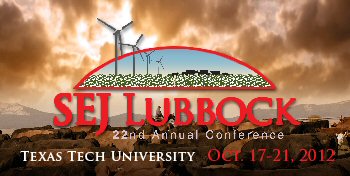



 Advertisement
Advertisement 


